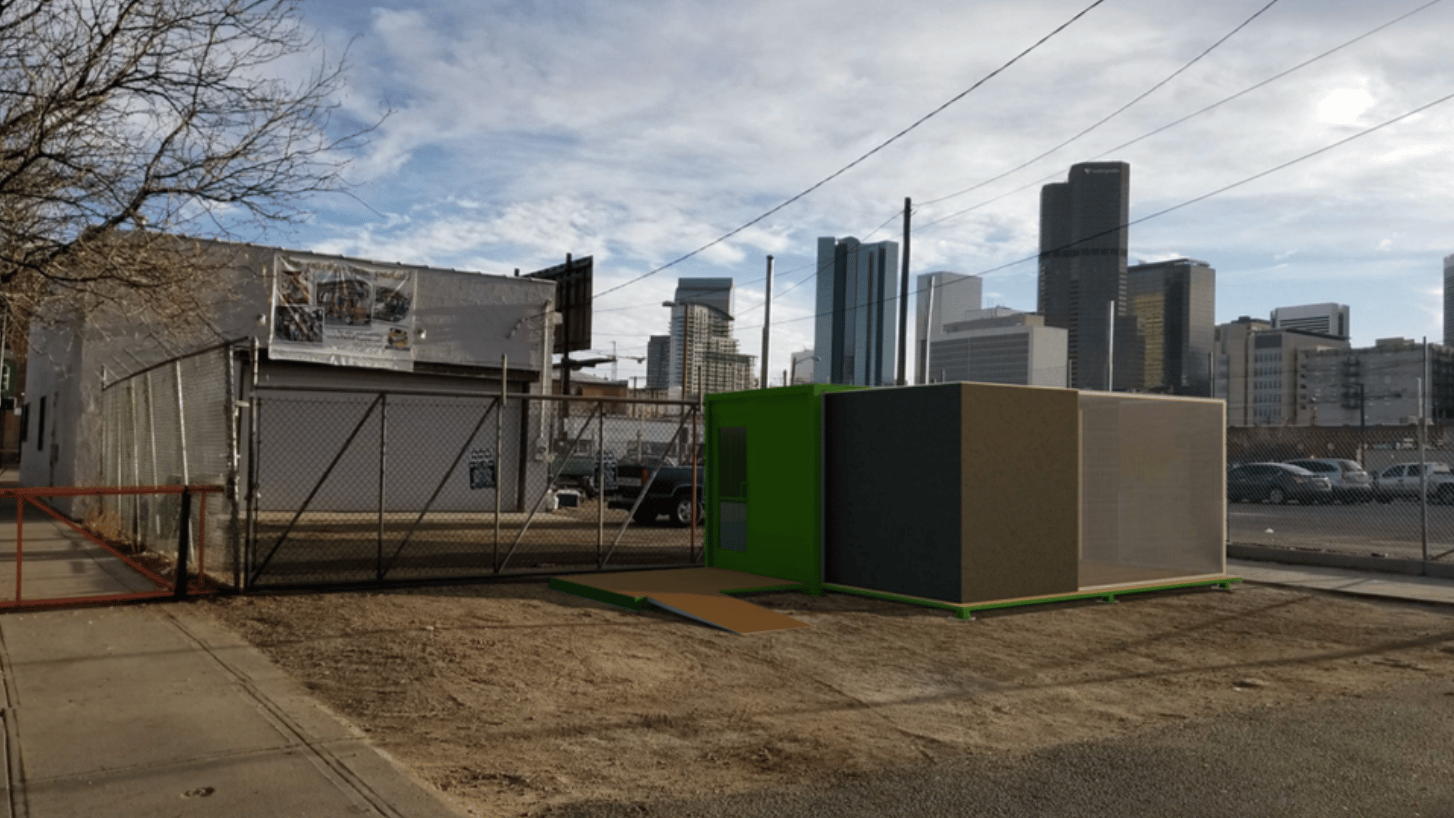Denver would have way fewer bars and breweries if the city treated drinking establishments like cannabis lounges.
Unlike bars, marijuana clubs -- places where people can kick back and vape (no smoking allowed) -- can't be within 1,000 feet of schools, day care centers, rec centers, public pools, or drug and alcohol treatment centers, which is why just two have opened since voters approved them in 2016.
The city's laws for social weed consumption are so restrictive that 67 percent of Denver's booze halls would not exist if they had to follow the same rules, according to data from Denver's business licensing center.
Denverite John McCaskill thinks shipping containers are the workaround everyone's been waiting for. McCaskill's company, HTBX International -- affectionately called "hotbox" -- has applied for a permit with the city that would let him plop a box or two downtown during special events and invite people in to chill.
If approved, Denver will see its first (legal) hotbox May 31 for the Final Friday Art Walk. It would be the first event of its kind in the city.
The idea is to put the hotboxes in the few places where restrictions don't exist.
The shipping containers are smallish (20 feet long and 8 feet wide, typically) and, unlike a building, mobile. McCaskill wants to prove the concept works, then sell and lease them to entrepreneurs as Colorado's new pot-friendly governor, Jared Polis, presumably works on getting looser rules passed at the legislature.
"We're not trying to fight against the system that's been established," McCaskill said. "We wanted to come up with a malleable solution that can grow with legislation."
City Councilwoman Kendra Black heads a policy committee that's looking to crack open the door just a little further for entrepreneurs. She liked the idea of hotboxes, as long as they're legal.
"Generally speaking I'm in favor of finding legal and innovative ways to appeal to social consumption businesses," she said. "We're missing that and as a result we're consuming in public places like parks and the 16th Street Mall where we don't want them to."
Black and other council members are mulling an extension to the 2020 sunset of the ordinance to give businesses owners more time to get financing. They're also considering easing the 1,000-foot restrictions.
No one (maybe someone) wants to sit in a dark box and get lifted, so these shipping containers will be much more than that.
If McCaskill's partners are any indication, the hotboxes are decidedly more than smoking sheds. Track Architecture of The Source and Stanley Market fame are design consultants. HTBX is also working with Lunch Box Hospitality for food service and Agile Box Company, which repurposes shipping containers.
The hotboxes are customizable, but the typical lounge fits about 12 people and uses solar power for lights and entertainment (with a backup generator). Each one has space dedicated to messaging from the Colorado Department of Public Health and Environment to discourage driving high and encourage other forms of transport.
"We're really looking forward to this opportunity to show how responsible consumption can happen in a developing, high-traffic area," McCaskill said.
If McCaskill's application is approved, he'll hold two events with hotboxes after May's Final Friday: One at the end of the Crush Walls art festival and one at Denver Arts Week in November.
Approval is up to the Denver Office of Excise and License. Eric Escudero, the office's spokesman, could not comment on the pending application. But he did say it was the first of its kind.
"What we want to do is make this process easier for people," Escudero said. "We're really trying to create a business-friendly city and that includes marijuana businesses. I can say it's the first time we've hired this idea. We're big fans of innovators in the business community."












